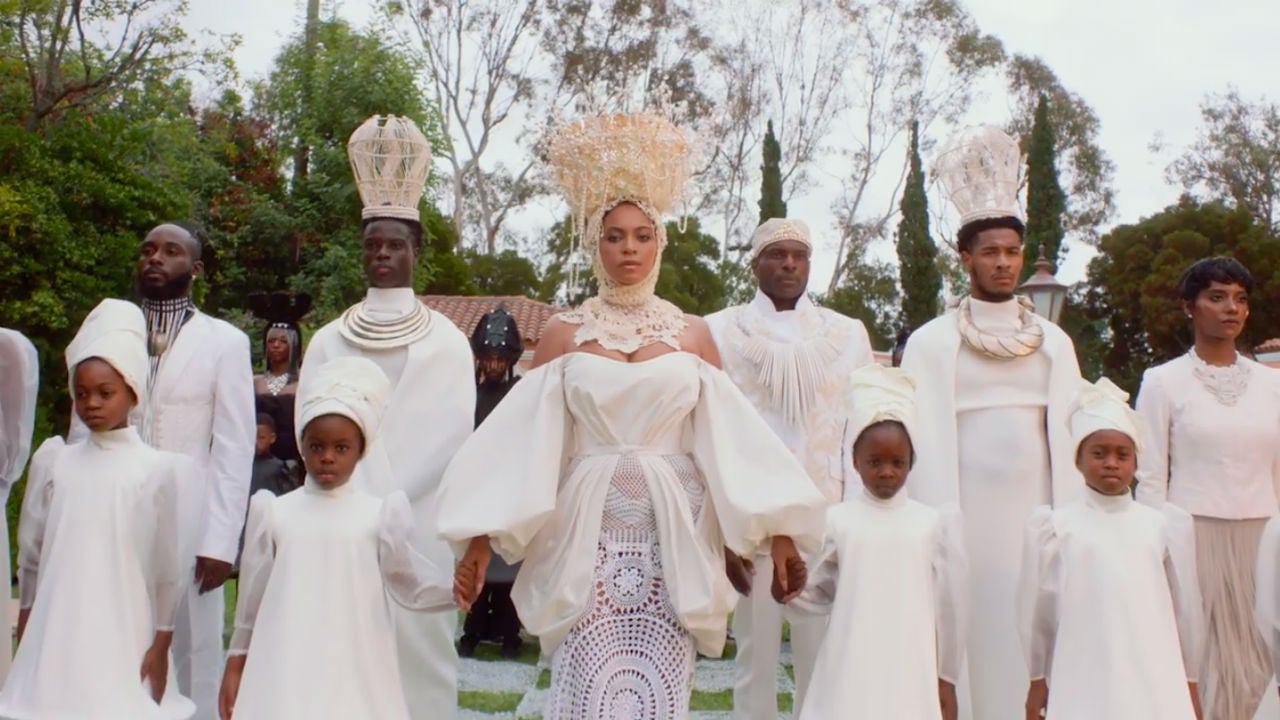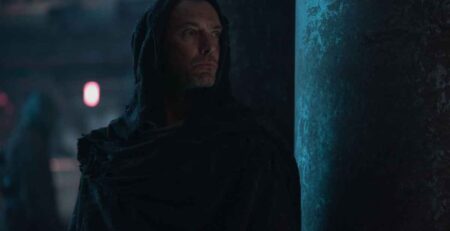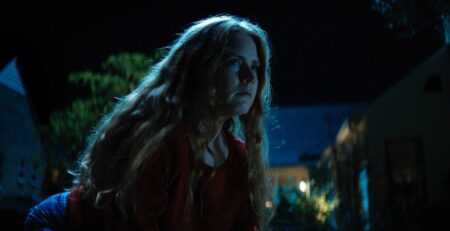
Black Is King is a musical film and visual album directed, written, and executive produced by Beyoncé that streamed exclusively on Disney+. The visual album serves as a companion piece to the 2019 album The Lion King: The Gift that was a tie-in album curated by Beyoncé for The Lion King (2019). The visual album also serves a reimagined story of The Lion King. The premise of Black Is King follows a young African king who is cast out from his family into an unforgiving world. He then undergoes a journey through betrayal, love, and self-identity to reclaim his throne, utilizing the guidance of his ancestors and childhood love. The premise of the visual album is reflective of the original The Lion King. Instead, it is told through the collaborative work of various Black and African musical artists, creators, fashion designers, and cultural references.
The Gift, the tie-in album to Black Is King, was produced and curated by Beyoncé, who described the album as “a love letter to Africa.” Instead of just sampling African artist song or sounds in her music. She was determined to have the best talent from Africa featured on the album. Black Is King reinforces her determination to cultivate a piece that doesn’t just use her interpretation of Africa as much as this album features Black artists such as Jay Z, Pharrel, and Childish Gambino. This project is indeed the result of collaborating female and male musical artists from across the African continent, such as Tiwa Savage, Tierra Whack, Tekno Miles, and many more.
The inclusion of African artists doesn’t just stop at the music in Black Is King. In addition to the musical artist, this visual album also includes costuming, fashion, and artwork, both modern and traditional, from Black and African creators. For example, the backup dancers in “Find Your Way Back wear Kanaga masks with crossbars on too. The masks are a reference to the Dogon people of Mali.
This is just another example of the intentional choices that were made throughout this project to highlight and so many Black and African creatives in a meaningful way. In my opinion, this is just another example of the intention choices Beyoncé made throughout this project to highlight and so many Black and African creatives in a meaningful way.
The first word that comes to my mind when I think of Black Is King is stunning. Every angle of this visual album is beautifully shot and directed from the costuming, lighting, angles. All of it is a cinematic masterpiece with vivid visuals in every scene. The cinematography truly speaks for itself throughout every scene. Some shots I especially loved the ariel shots that capture beauty and vastness of the African landscapes and nature from a bird’s eye view. Since this is a retelling of The Lion King, I thought how the visual album blends moments from the original film into this retelling of the story well done for the most part. I especially enjoyed the scenes that feature James Earl Jones, the voice of Mufasa, giving beautiful monologues that featured lines from the Disney classic.

As a Black woman in America, I fully recognize that I have a limited connection to my African heritage. As a descendent of enslaved Africans, I don’t have a clear connection to my African roots and that means that I don’t know precisely where my ancestors came from. While I acknowledge that there are references that I am not familiar with outside of the way they make me feel, if we look at Beyoncé,’s previous work, this is what she does with her visual albums. Beyoncé loves to work in references that have a historical, political, or cultural connection and use them to make a statement through the music, fashion, and/or visuals she uses. And she is doing the same thing in Black Is King.
At the same time, some references are more recognizable than others. For example, the basket carrying a baby to shore is a reference to the story of Moses, where the mother places her baby basket in hopes of sparing his life from danger. I understood this reference as a result of my Christian upbringing and teachings of the biblical story. However, Black Is King also allows audiences like me to be exposed to references to African culture that we may not have experienced or seen before. By doing this, it showcases an array of references to the art, music, and traditions that all have made contributions to Africa’s rich and vast culture.
Watching this film sparked a lot of curiosity in me. I wanted to research and learn more about the references and the meanings behind them, and through that, a continent I want to feel connected to. For example, I found the scene where Beyoncé has a braided hairstyle with cow horns, with cowhide as a backdrop, sitting horseback to be very striking. After some research, I learned that this shot is inspired and pays homage to the South African Xhosa women by using cowhide, horns, and pipe.
Another thing that I enjoyed about this visual album was the music video for “Brown Skin Girl.” This song, in my opinion, is an anthem of self-love and acceptance to Black girls and women of all shades. The visuals that accompany the song reinforce this idea. The message of the song is clear that we are all beautiful and should love our skin not just for its beauty but also for the story behind it.
“We were beauty before they knew what beauty was.”
For years and sadly, even to this present day, women with dark-colored skin are viewed as less desirable by mainstream culture. Granted, it has gotten better over time, but that is in part to Black people, specifically Black Women, breaking down the negative connotations of having brown skin. So I appreciated that the lines, reinforce that Black Women have always been beautiful even before the beauty standards were created.

Black is King’s larger message of remembering who you and where you come resonates with me throughout the course of the film. In the opening performance of “BIGGER,” there is a line that states, “History is your future.” This film gives the message that where we came from, where we are, and where we are going are all connected through our ancestry, but also what we decide to leave behind for the next generation. As if we are all connected to something bigger as it comes full circle in our own unified circle of life.
Additionally, the song Black Parade acknowledges the on-going Coronavirus pandemic, Black Lives Matter protests, and other references to the Black experience in America, in addition, to celebrating ancestral connections to African roots throughout the diaspora. The lyric that sticks out to me the most is, “I can’t forget my history. Her story is my story”. I interpret that as a reminder that while I may have a disconnect to my African roots and heritage, I can take pride in knowing my story is still a part of the diaspora.
To me, Black Is King is a celebration of Black and African cultures through a Pan-African lens. Pan-Africanism is an idea that aims to encourage and strengthen bonds of solidarity between all indigenous and diasporic ethnic groups of African descent. Black Is King, does a tremendous job communicating this idea. Additionally, as much as Black Is King expresses the concept of Pan-Africanism. It also highlights specific cultures from different regions of Africa with multiple visuals throughout the film.
The visual album even includes a scene where a crowd of people rejoices as they hold an American flag. However, the flag colors are replaced with the Pan-African flag colors, symbolic of how unity amongst descendants of Africa. That we are not alone and that our ancestors have not left us, that they are always with us wherever we go. Additionally that we can feel a sense of unity and pride amongst one another.
Black Is King also does a great job of highlight individuality amongst African cultures across the continent. For example, the references range from the representing riches of North Africa, traditions from the West, and artistry from the South. By doing this it is showing audiences different sides of Africa that audiences in the West typically don’t see in mainstream media. The film shows the audience that Africa is made up of rich and vast culture that is made of a variety of wealth, spirituality, knowledge, and traditions that is more than just their Western perspective. Thereby disputing the negative connotations and stigmas that they have about Africa.
Overall, Black Is King is a beautiful reimagined story of The Lion King told through a Pan-African lens that celebrates Black and African culture through showcasing a variety of music, artist, and stunning visuals. That not only communicates the beauty and unity of the African diaspora but also showcases the specific African with individual references.
Personally, Black Is King left me more entertained and with a deeper emotional connection to the original Disney classic than the 2020 adaptation. It also tells a powerful message of being proud and celebrate one’s heritage and history, regardless of where they fit within the diaspora.
Black Is King is now streaming exclusively on Disney+.
Black Is King
TL;DR
Overall, Black Is King is a beautiful reimagined story of The Lion King told through a Pan-African lens that celebrates Black and African culture through showcasing a variety of music, artist, and stunning visuals. That not only communicates the beauty and unity of the African diaspora but also showcases the specific African with individual references. It also tells a powerful message of taking pride in one’s heritage and history regardless of where they fit within the diaspora.




